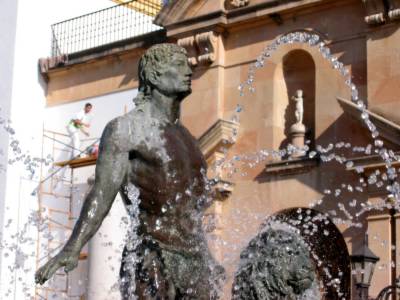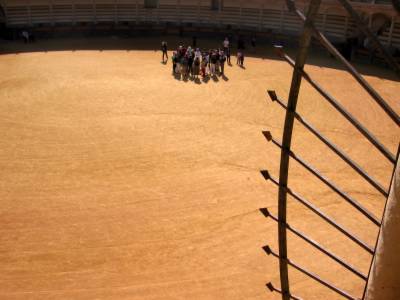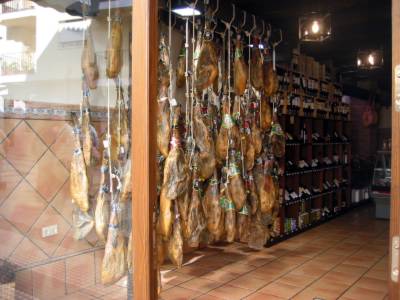
Ronda, Spain.
One of the prettiest and histori towns in Andalucia, Ronda is a world apart from the nearby Costa del Sol. Straddling the 100 m savagely deep and steep El Tajo gorge, Ronda was a pivotal commercial center in Roman times. Fortunes dwindled under Moorish rule after Al Mutadid ibn Abbad drowned the ruling lord in his bath and annexed the city for Sevilla. More recently, Ronda--the birthplace of modern bullfighting--has attracted such forlorn artists as Rainer Maria Rilke, who wrote his Spanish Elegies here, and Orson Welles, whose ashes are buried on a bull farm outside of town.

Ronda's Plaza de Toros was inaugurated in 1785. It is regarded as the world's most beautiful bullring, and among the oldest in Spain.

Ronda's Plaza de Toros (1785), the home of bullfighting and a mecca for aficionados.

Ronda's Plaza de Toros bullring.

Ronda's Plaza de Toros bullring.

Ronda....lost for words.

Valley of Ronda, beautiful, beautiful, beautiful...

Carved by the Rio Guadalevir, Ronda's gorge falls 100m below the Puente Nuevo (18th-century), across from Pl. Espana. Arrested highwaymen were once held in a cell beneath the center of bridge; during the Civil War, political prisoners were thrown from the top.

Ronda the town on the cliff.

Sixty meters below the Casa del Rey Moro lies an Islamic well constructed during the 1300s. Four hundred Christian prisoners were once employed in the arduous task of drawing water from the river Guadalevir. We climbed down a series of passageways and stone steps to survey the ravine's depths.

Ronda, the charming hill town that Hemingway, Orson Welles and Madonna fall in love to.

Mountains and fields of olive trees outside Ronda.

Street of Ronda.

Jamon store, Ronda.

Moon over Arcos de la Frantera. "Imagine a long, narrow bridge, undulating; place on it little white houses, clustered among others more ancient; imagine that both sides of the mountain have been cut away, dropping downward sheer and straight; and at the foot of this wall a slow, silent river, its murky waters licking the yellowish stone, then going on its destructive course throughout the fields... and when you have imagined all this, you will have but a pale image of Arcos." -- Azorin.

No comments:
Post a Comment